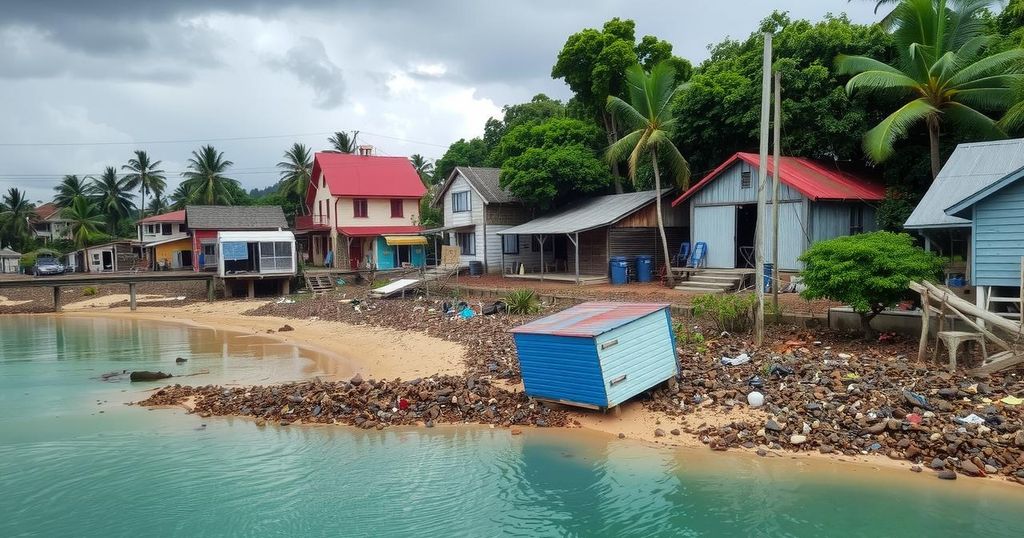Brazil has called for increased global adaptation efforts to climate change following the devastation caused by Cyclone Chido in Mayotte. Expressing condolences to the victims, Brazil emphasizes the need for international solidarity and action against climate change while advocating for ambitious measures to reduce greenhouse gas emissions. The upcoming COP30 conference in Belem will provide a platform for these discussions.
The recent devastation wrought by Cyclone Chido in Mayotte, a French archipelago in the Indian Ocean, serves as a poignant reminder of the urgent need for increased global adaptation efforts to combat climate change, according to Brazil’s government. In a formal statement, Brazil expressed its condolences to the victims and underscored the necessity for collective action in the face of escalating extreme weather events, attributing a significant part of the cause to climate change.
As the current holder of the G20 presidency, Brazil is preparing to host the upcoming UN climate change conference, COP30, scheduled for November 2025 in Belem, located in the Amazon region. In light of the recent cyclone, Brazil’s foreign ministry, reflecting a commitment to international collaboration, urged fellow nations to enhance their adaptation strategies in response to growing threats posed by climate fluctuations.
Brazil has voiced its sorrow concerning the cyclone that resulted in widespread destruction and loss of life, particularly in Mayotte, where resilience against such catastrophic events remains a pressing challenge. The Brazilian authorities noted their solidarity with both the populace of Mayotte and the French government, keenly aware that nearly a third of the island’s 320,000 residents reside in vulnerable dwelling conditions.
In its ongoing efforts to combat climate change, Brazil has taken significant steps since President Luiz Inacio Lula da Silva’s return to power, emphasizing the reduction of deforestation in the Amazon, which plays a crucial role in mitigating greenhouse gas emissions. Notably, Brazil announced intentions to revise its emissions reduction targets upward and remains a vocal advocate for the global community to accelerate the transition away from fossil fuels. During the recent COP29 summit in Azerbaijan, it joined other nations in calling for increased financial support from wealthier countries to assist developing nations in climate resilience efforts.
The article highlights the impact of Cyclone Chido on Mayotte and Brazil’s response to this disaster. Mayotte has been severely affected by the cyclone, prompting Brazil to call for international cooperation in addressing the implications of climate change. Brazil’s leadership role within the G20 and its upcoming hosting of COP30 signifies its commitment to tackling climate issues on a global scale, advocating for greater adaptation strategies, and promoting sustainable practices to mitigate climate-related disasters. This situation underscores the critical importance of international solidarity and proactive measures as climate events become increasingly severe and frequent.
In conclusion, the tragic event of Cyclone Chido in Mayotte emphasizes the necessity for enhanced global adaptation strategies to combat the consequences of climate change. Brazil’s call for solidarity and increased efforts from the international community illustrates its determination to address the urgent environmental challenges faced by nations worldwide. As Brazil prepares for its upcoming role in leading international climate discussions, the focus on reducing greenhouse gas emissions and supporting vulnerable nations remains paramount.
Original Source: www.barrons.com






